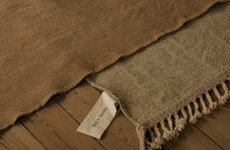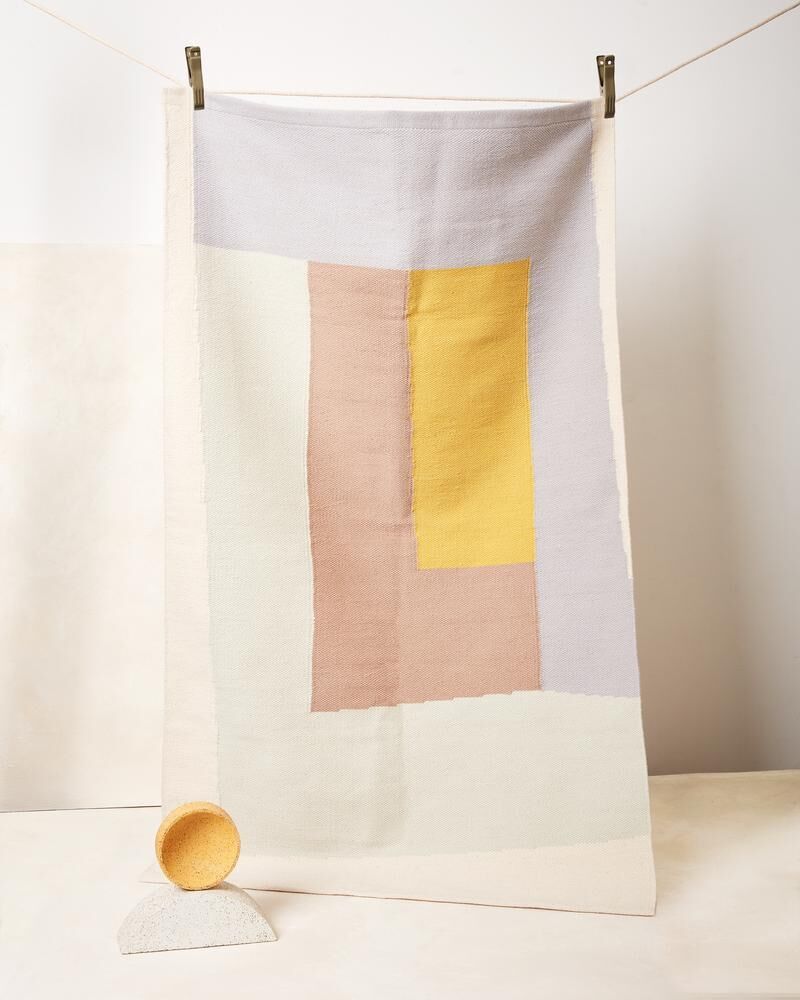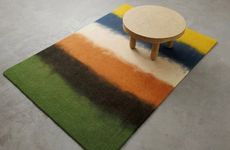
MINNA Goods' Traditionally Crafted Wool Rugs are Chic and Authentic
Kalin Ned — August 31, 2020 — Social Good
References: shop.design-milk & design-milk
MINNA Goods is known for its expertly crafted wool rugs. The designs are chic and contemporary, drawing the eye with geometry and playful use of color. Quite versatile, consumers can place the pieces on the floor or on their walls. The brand uses sustainable and naturally sourced materials. Understanding the need for being socially responsible as a business, the brand places immense emphasis on ethical manufacturing techniques, as well.
MINNA Goods' traditionally crafted wool rugs are made by hand all around the world. This includes countries like Peru, Mexico, and Guatemala. The brand channels historic methods of production within these communities—pedal loom weaving, for example—as a way to share and preserve these techniques. In addition, MINNA Goods supports social business by "working with family-run workshops and independently-run cooperatives where the artisans set their own wages and collaborate in the process."
Image Credit: MINNA Goods
MINNA Goods' traditionally crafted wool rugs are made by hand all around the world. This includes countries like Peru, Mexico, and Guatemala. The brand channels historic methods of production within these communities—pedal loom weaving, for example—as a way to share and preserve these techniques. In addition, MINNA Goods supports social business by "working with family-run workshops and independently-run cooperatives where the artisans set their own wages and collaborate in the process."
Image Credit: MINNA Goods
Trend Themes
1. Sustainable Materials - Businesses that prioritize the use of sustainable and naturally sourced materials have opportunities to appeal to consumers who value environmental responsibility.
2. Ethical Manufacturing - Companies that implement ethical manufacturing techniques, such as working with family-run workshops and independently-run cooperatives where artisans set their own wages, can attract consumers who prioritize social responsibility.
3. Preserving Traditional Techniques - Businesses that channel historic methods of production within communities, such as pedal loom weaving, have opportunities to share and preserve these techniques while creating unique and authentic products.
Industry Implications
1. Home Decor - Home decor companies that prioritize using sustainable and naturally sourced materials, implement ethical manufacturing techniques and preserve traditional techniques may appeal to environmentally responsible and socially conscious consumers.
2. Artisanal Craft - Artisanal craft companies that work with family-run workshops and independent cooperatives, while preserving traditional techniques, have opportunities to attract consumers who value authenticity and ethical manufacturing practices.
3. Textile Industry - Businesses in the textile industry that prioritize sustainability, ethical manufacturing, and preserving traditional techniques may gain a competitive advantage by appealing to green and socially conscious consumers.
3.6
Score
Popularity
Activity
Freshness























